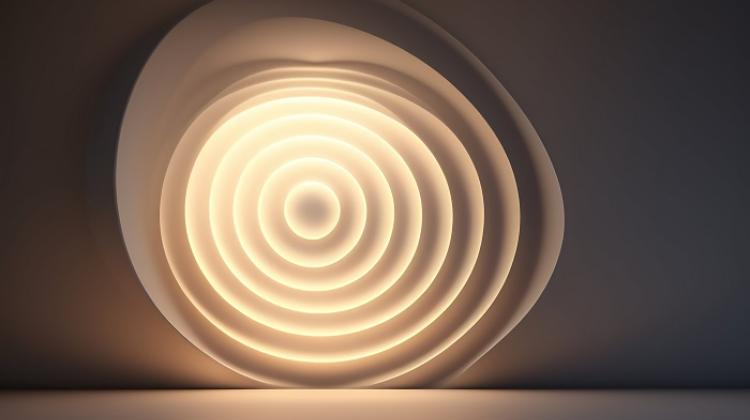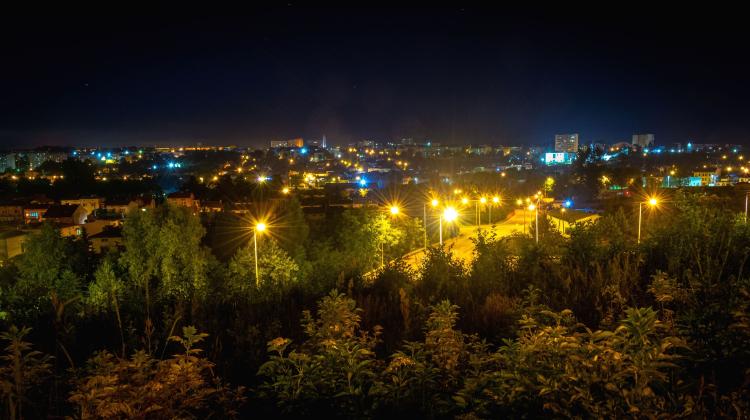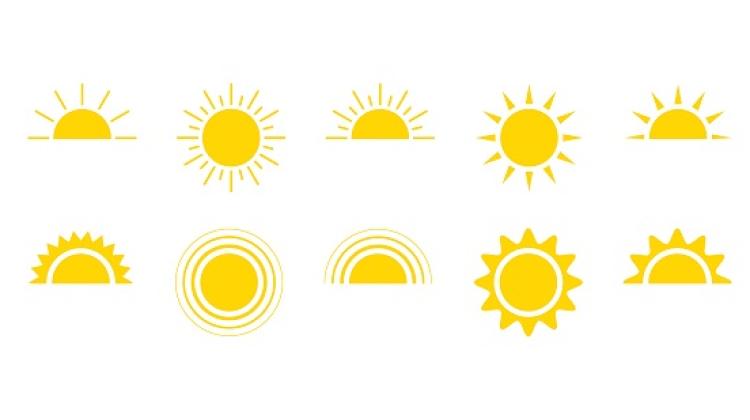Too much light at night harms human health, say experts
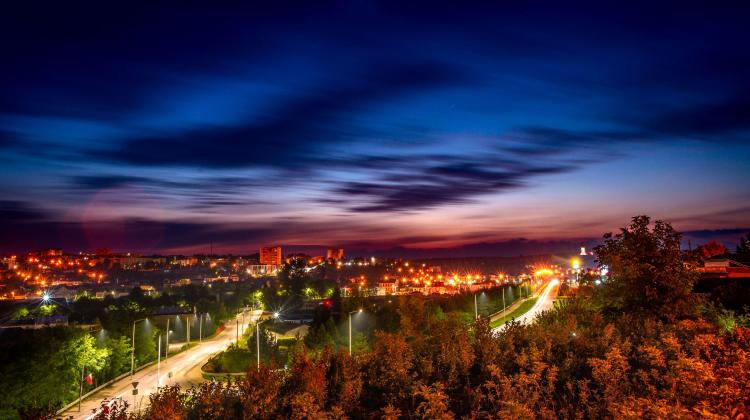 Credit: Adobe Stock
Credit: Adobe Stock
Too much light at night not only interferes with astronomical observations and disrupts the behaviour of animals and plants, it can also threaten people, disrupting sleep, promoting obesity, depression and even cancer, said participants of the interdisciplinary seminar 'The Dark Side of Light - light pollution and its impact on our life'.
The seminar took place last week in Warsaw at the Office of the Commissioner for Human Rights.
According to experts, the human body is synchronised with the natural cycle of light and darkness, which is why excessive exposure to artificial light destabilizes the human biorhythm, may cause insomnia, chronic fatigue and overstimulation, and even aggravate mental disorders and neurological diseases.
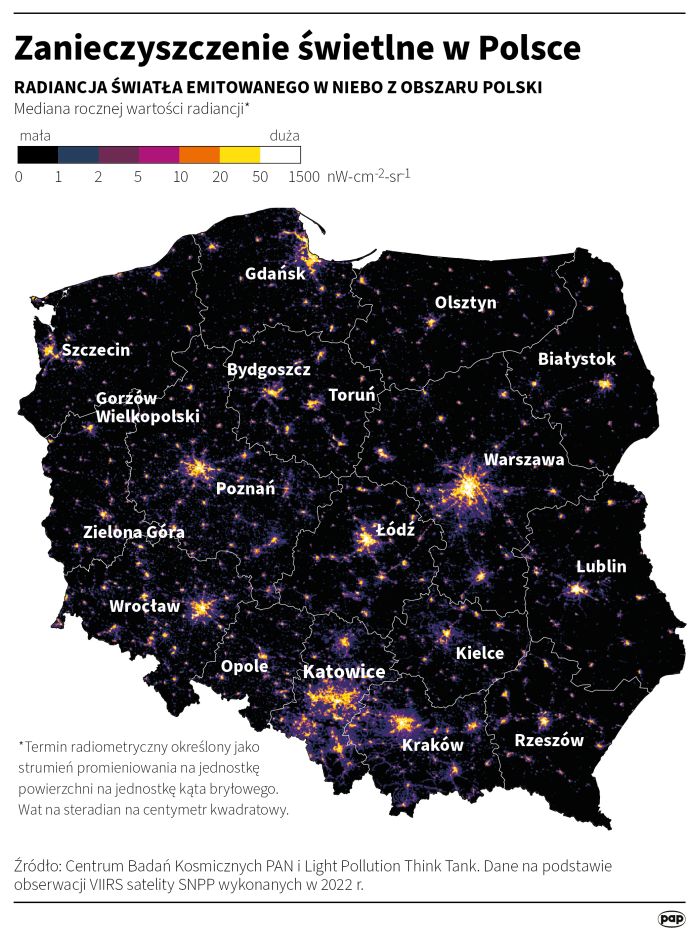
Dr. Dorota Wołyńczyk-Gmaj from the Medical University of Warsaw cited the results of research on the American population: people living in more illuminated areas fell asleep later, slept for shorter periods, were more sleepy during the day and more often suffered from circadian rhythm disorders. The brighter, bluer the light, and the longer it was on, the more problems it caused.
The effects of sleep deprivation can be surprising. For example, it has been shown that sleep-deprived men not only react more emotionally and aggressively, but also spend money more recklessly. Worse still, you can get used to the lack of sleep - but only seemingly, because despite feeling good, the results of cognitive tests remain worse than in people who are well-rested.
Excessive artificial light at night can lead to eye fatigue and reduced vision quality, which can be a particular problem for drivers. Especially if they are sleep deprived - a sleepless night causes the driver's reactions to be similar to those with 0.8 per mille blood alcohol.
Dr. Jadwiga Attier (geriatrician at Hospital de Saint-Quentin, France), who connected remotely with the conference participants, mentioned the role of artificial light in the lives of older people, who become less sensitive to light with age due to changes in their eyes and brain. While blue light can have a stimulating effect on them during the day, after 7 p.m. such light should be limited and calming red light should be used instead. In France, children learn how to avoid excessive exposure to light from ubiquitous screens.
Under the influence of artificial lighting, the secretion of melatonin, the sleep hormone, is inhibited. No wonder that the best known effects of light pollution include sleep disorders, said Dr. Małgorzata Fornal-Pawłowska (Insomnia Therapy Office, School of Cognitive-Behavioral Psychotherapy, SWPS University). According to her recommendations, to sleep well, one should go to bed around 10 p.m., avoid using screen devices such as TVs or phones for at least an hour beforehand, and, of course, refrain from taking a phone to bed. Once the disorders occur, following these rules is not enough and insomnia therapy becomes necessary.
According to Dr. Paweł Gać (Wroclaw Medical University), excess light, especially blue light, can have many harmful effects. It increases the risk of diabetes, depression and suicide, as well as heart disease, breast, prostate and lung cancer. Excessive artificial light at night, for example, contributed to the spread of Covid-19 because it disrupted biological rhythms, leading to decreased immunity.
A study conducted a few years ago by the Institute of Cancer Research in London on approximately 110,000 women showed that body mass index (BMI) was higher in those who slept in bright rooms.
Experts emphasised that in the case of high-energy ultraviolet light, used, for example, in tanning salons or when hardening nail polish, direct tissue damage and accelerated skin ageing may occur (which is why a protective fingerless glove should be worn on the hand exposed to nail irradiation).
To combat light pollution, standards are needed specifying the maximum permissible parameters of disturbing light (e.g. LED) from external lighting devices. There are no such regulations in Poland, as the Commissioner for Human Rights, Professor Marcin Wiącek pointed out.
Writing on his website, he said: ’There are simple, technical ways to reduce the harmful effects of LED lighting. However, to apply them and guarantee citizens' constitutional right to health care, a change in the law is needed. Light pollution should be limited and the lighting of public spaces should be regulated in accordance with the principle of sustainable development.’
Since the regulations do not specify the permissible intensity of external lighting, the Commissioner for Human Rights turned to the Minister of Development and Technology on this matter. (PAP)
Paweł Wernicki
pmw/ bar/ kap/
tr. RL
Przed dodaniem komentarza prosimy o zapoznanie z Regulaminem forum serwisu Nauka w Polsce.





